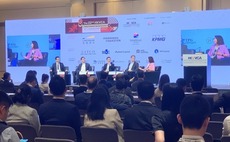
Japan's secondaries surge
Secondary deals in Japan spiked in 2011 as buyouts from before the global financial crisis found an exit. With the country's economic prospects improving, industry participants expect the flow to continue
Secondaries have never accounted for a significant proportion of exits in Japan - between 2007 and 2010 there were only 6-7 a year. In 2011, however, the number jumped to 15, followed by 11 in 2012. There have already been 11 so far this year worth a combined $1.2 billion - just over 20% of total PE equity exits.
The standout deal was Advantage Partners' sale of Komeda Coffee to MBK Partners for $482 million. The domestic GP achieved a 7x money multiple, but Josh Porter, managing director at Advantage, argues there are benefits at both ends. "Some question the value of one GP buying from another because they assume the value has already been extracted and perhaps the buyer won't have the opportunity to create additional value but the data doesn't seem to suggest that that has been the case," he says.
The surge in secondary deals from 2011 can be traced back to buyouts from the years leading up the global financial crisis. Investors want to exit, and with weak public markets and uncertainty among strategic players, secondaries are a welcome source of liquidity. Unison Capital has been on both sides of the table. Last year it bought auto industry supplier Asahi Tec from RHJ International and repair company Minit from CVC Capital Partners, then sold sushi chain Akindo Sushiro - which it backed in 2007 - to Permira.
More recently secondary deals in Japan have taken place against a different backdrop. The country has gone through a series of major economic reforms - introduced by Prime Minister Shinzo Abe - which have led to a devaluation of the yen and a consequent increase in investor appetite for Japanese assets. Secondary buyouts, previously so dominant, are only part of the story.
"I think that deal flow in the PE secondaries market is becoming stronger than ever before," says Moriyoshi Matsumoto, managing partner of secondaries specialist WM Partners, which spun-out from JAIC. "Japan has struggled to revitalize its economy in the last three years, so people thought it was too late to sell and too early to buy. Since the Abe administration came in more investors are looking to do deals."
WM Partners - one of just two pure secondaries platforms in Japan, alongside Ant Capital Partners - is targeting up to JPY10 billion ($102 million) for its debut fund. Matsumoto sees his opportunities in earlier stage deals where there has been a gap between seed and pre-IPO stage investments, creating an opportunity for GPs that can provide the capital and expertise needed to take a company to the next level.
While deal sizes are obviously smaller, early-stage secondaries accounted for a significant portion of deal flow last year. VC firms were involved in five of the 11 transactions.
Corporate venture funds were active participants. Yasuda Enterprise Development, SBI investment and Neostella Capital bought a minority stake in construction company Tama Home from Daiwa Corporate Investment and Mizuho Capital; Nissay Capital acquired a share in e-commerce site operator Dream Vision from the same group. In March, Future Investment - the investment arm of Future Architect - acquired sport products e-commerce company E-Sport from Global Brain, a 2005 vintage fund.
"We have seen more corporate venture capital funds being set up," says Joji Takeuchi, co-founder of PE advisory firm Brightrust Japan. "It is possible those funds could look to purchase portfolio companies from independent VC funds that were established in the early 2000s."
This phenomenon is not been limited to venture capital - a number of mid-cap PE funds are coming to the end of their lifespan, correlating with the rise in the number of Japan funds that reached a final close a decade earlier.
Shunsa Hayashi, managing director with Ant Capital - which covers traditional and direct secondaries in Japan and Greater China - sees this as a global phenomenon. "The secondaries market is picking up but there is still a limited number of players so we have opportunities, especially in the mid-cap space," he says.
Ant Capital is currently raising its fourth secondaries fund which launched early last year with a target of $150 million.
Browsing for buyouts
However, the balance of the market is still likely to favor regional and global buyout players. They are increasingly interested in Japan due to the improving macroeconomic environment and there is no shortage of willing sellers among the mid-market GPs with portfolios to exit.
In addition to the Akindo Sushiro and Komeda's Coffee transactions, CVC bought employment agency Prompt Holdings from Cerberus Capital Management last year, while this week China's CDH Investments and Belle International to acquire a stake in CLSA Capital Partners-owned apparel brand Baroque Japan.
There is no doubt the larger buyout players are interested. KKR, which recently announced a $6 billion final close on its second pan-Asian fund, has said it expects to become more active in the country. The Carlyle Group, meanwhile, is seeking around $1 billion for its third Japan fund.
"It should also be noted that there have been a good number of high-multiple exits in the past two years in Japan both by local funds and foreign funds," says Brightrust's Takeuchi. "Most investors' Asian allocation is so heavily concentrated on China and India that some sort of rebalancing would be appropriate for their portfolio risk management."
Latest News
Asian GPs slow implementation of ESG policies - survey
Asia-based private equity firms are assigning more dedicated resources to environment, social, and governance (ESG) programmes, but policy changes have slowed in the past 12 months, in part due to concerns raised internally and by LPs, according to a...
Singapore fintech start-up LXA gets $10m seed round
New Enterprise Associates (NEA) has led a USD 10m seed round for Singapore’s LXA, a financial technology start-up launched by a former Asia senior executive at The Blackstone Group.
India's InCred announces $60m round, claims unicorn status
Indian non-bank lender InCred Financial Services said it has received INR 5bn (USD 60m) at a valuation of at least USD 1bn from unnamed investors including “a global private equity fund.”
Insight leads $50m round for Australia's Roller
Insight Partners has led a USD 50m round for Australia’s Roller, a venue management software provider specializing in family fun parks.







